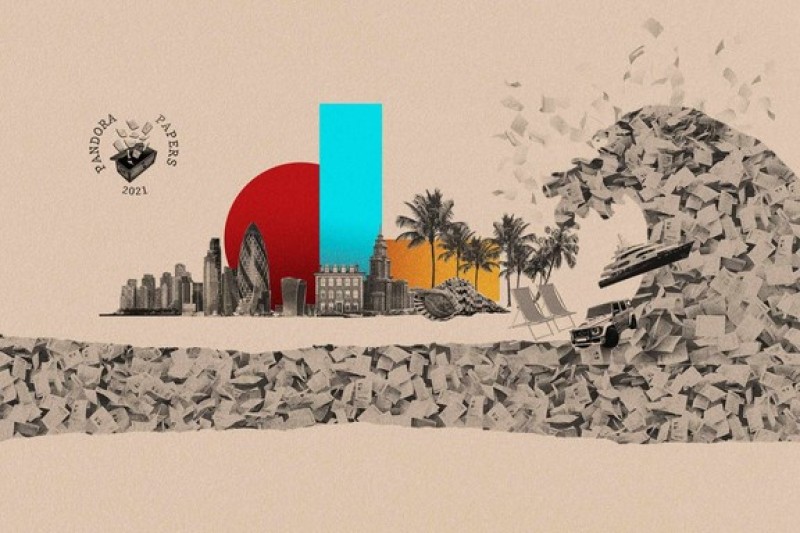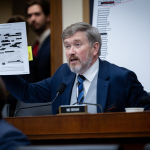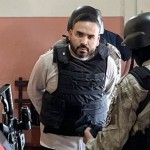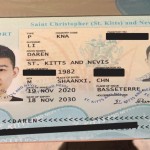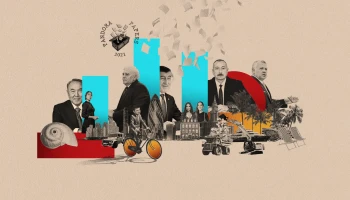Based on 12 million documents leaked from 14 companies that provide corporate services in offshore jurisdictions, the Pandora project sheds light on how part of the globe’s elite is using offshore firms to evade taxes and park undeclared wealth in real estate and other assets.
Among the most prominent current or former leaders and politicians named in the leak are family members of Azerbaijan’s Ilham Aliyev, Jordan’s King Abdullah II, former U.K. Prime Minister Tony Blair, Czech Republic Prime Minister Andrej Babiš, Kenyan President Uhuru Kenyatta, and associates of both Pakistani Prime Minister Imran Khan and Russian President Vladimir Putin.
As thousands express their outrage over the revelations on social media, authorities around the world are promising to investigate officials as high as prime ministers, while experts appear to be pessimistic about the idea of anyone doing anything about it other than condemn the practice.
“We see the same ominous pattern as in the Panama Papers leak of 2016 and the Paradise Papers leak of 2017: legalized corruption at the highest levels, on an almost unimaginably vast scale,” Brooke Harrington, an American author and professor of economic sociology, who has been researching the offshore world for nearly 15 years, wrote in a New York Times opinion piece.
She noted that those who have the power to end this practice are the same people who are prolonging it for their own benefit.
“Each successive leak drives home the same message: Abandon any hope that government will serve the people or that the rule of law will be applied equally to all, the foundational premises of modern government,” Harrington said.
English comedian, writer, and activist, Russell Brand, interpreted the revelations in a similar way in a Facebook post that was liked and shared by thousands. He explained that those named in the documents are not even necessarily doing anything illegal because of loopholes in the system.
It is an “invisible, systemic crime,” Brand said, adding that the leak revealed “a class of institutions, individuals and corporations that can go around doing what they want, not participating in the economic systems that we are bound to participate in, and told that if we don’t participate, we are not good citizens.”
In the U.K., tens of thousands are signing petitions urging the British government to close the tax loopholes for the rich and powerful.
This weekend, Babiš’s party narrowly lost a parliamentary election, leaving him slim prospects of staying Czech prime minister. A week before, the Pandora Papers revealed that he transferred US$22 million through offshore companies and bought a chateau on the French Riviera.
But how did the elite react?
Some expressed concern, promised probes and even proposed legislation that would close the loopholes in the system. Others didn’t really think the findings were a big deal.
A European Commission spokesperson said on Monday that the EU has “invested heavily” in international tax reform to ensure that tax rules are fair and transparent, both in the EU and globally, adding that while it is a “matter of fairness that people pay taxes,” the Commission is not in a position to take a stance on individual cases that were revealed in Pandora.
In Bulgaria, the National Revenue Agency announced that they have requested more information from the International Consortium of Investigative Journalists (ICIJ), which received the leaked files, and may take further action if tax evasion is identified.
So far, media mogul and politician Delyan Peevski has been the only Bulgarian named in the global investigation.
“Apparently, Mr. Peevski's influences are more visible from the outside than from the inside. This does not speak well for our law enforcement agencies," Bulgarian President, Rumen Radev, told journalists in Stara Zagora last week.
Both the anti-corruption commission as well as the country’s tax authorities have launched investigations.
Pandora revealed the offshore property of a number of current state leaders, including Jordan’s King Abdullah II, whose Court said that the uncovered properties are “no secret,” and Lebanon's newly-appointed prime minister Nijab Mikati, who said that his family’s wealth is legal, and comes from a telecommunications business that has been previously audited.
Others named in the investigation have also professed innocence.
In Sri Lanka, the husband of a former minister, Thirukumar Nadesan wrote to President Gotabaya Rajapaksa seeking an independent inquiry into Pandora findings that he and his wife, Nirupama Rajapaksa, have hidden wealth stashed away in offshore companies.
They told the President that they are “totally innocent.”
In Montenegro, the Prosecution announced that they will open a case against President Milo Djukanovic and his son, both subjects of a Pandora investigation.
The project’s findings reinforced the role both the U.S. and the U.K. play in enabling tax evasion and money laundering, with both proving themselves once more as favorable destinations for questionable wealth.
And yet while Chancellor Rishi Sunak said that British tax officials will probe the revelations, he also told BBC Radio 4 that he doesn’t think it’s a “source of shame” that London is referred to as the world’s "tax avoidance capital."
The British Law Society Gazette also said that the Solicitors Regulation Authority "wants to see documents released as part of the Pandora papers to establish whether any law firm has breached anti-money laundering rules."
In the U.S. however, a group of lawmakers announced the introduction of the bipartisan Establishing New Authorities for Business Laundering and Enabling Risks to Security, or “The ENABLERS Act,” after the Washington Post reported that U.S. trust advisors helped a Colombian businessman launder drug money, and two Ecuadorian brothers hid millions stolen from a government bailout in their homeland.
Crafted by members of Congress Tom Malinowski, Maria Elvira Salazar, Steve Cohen, and Joe Wilson, the bill would impose stronger due diligence requirements on U.S.-based middlemen, and would amend the existing Bank Secrecy Act.
It would “ensure” that the U.S. stops “giving kleptocrats and criminals a safe haven for the money they steal from their people. In turn, it would protect Americans from inflated real estate prices, job loss, human trafficking, and influence peddling,” the lawmakers said.
